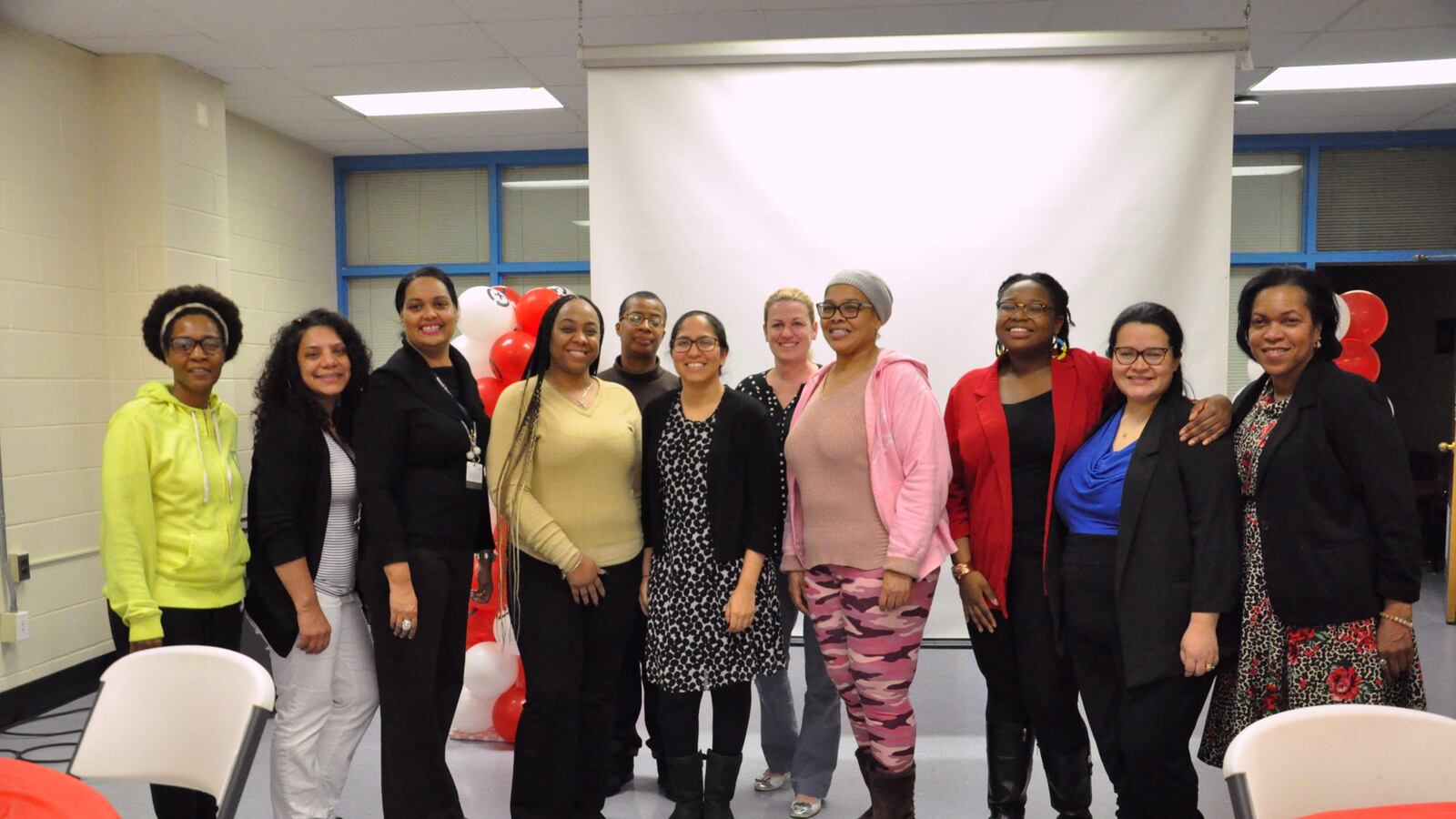When Yolanda Johnson attended Camden Street Elementary, her grandmother, who raised her, helped lead the school’s parent organization. While keeping tabs on the school, her grandmother also kept an eye on Johnson’s performance in the classroom.
“If she wasn’t involved, I don’t know what I would’ve done,” she said.
Today, as the mother of a University High School student, Johnson believes so strongly in the benefits of her grandmother’s involvement that she champions for increased family engagement in education and is involved in University’s parent organization.
Research backs up the importance of parent groups. Students’ grades and graduation rates can increase when their families are more involved in their education.
But a Chalkbeat records request for all current, active parent organizations in the district shows that 14% of Newark schools don’t have official parent organizations as of November 2019. January school board minutes show the district is still trying to get a current count.
How to get parents more involved in educating their students and giving input into district policy has been a standing topic on the board’s agenda for months. A continuous thread in Superintendent Roger León’s strategic plan is to involve more parents and create parent organizations in every school. He also wants to establish a districtwide council of parents that pulls from those organizations.
However, some parents still don’t think the district is doing enough to involve parents, and they don’t understand how much input León wants them to have in decision-making.
“I know the district has pushed for more parent involvement … but it’s just not enough,” Johnson said. “It needs to be more aggressive.”
Work responsibilities, no access to transportation, and poor lines of communication between schools and parents can create barriers to parental involvement in schools.
Peshine Avenue School has a parent organization that could set an example for other schools. The group meets three times a month — once as a whole, once as an executive board, and once with the school administration.
This past November, the organization fed more than 50 people during its Thanksgiving Drive and gave Christmas toys to the school’s younger students in December.
“We stayed there from 7 a.m. in the morning until 7 p.m. that night wrapping gifts,” President Kimberly Charles said, noting that they have several more fundraisers and bake sales planned, as well as events during Teacher Appreciation Week in May. “We try to stay as involved as we can and make ourselves accessible.”
Charles thinks the district-wide parent council “would be great. The more parents we can get involved will not only make schools stronger, but the community stronger.”
“If we could interact with other schools and other parents, that would be really great. It takes a village to raise a child,” she said.
In its ongoing effort to increase parental involvement, the school board launched its parent engagement tour in October. It provides a casual setting for parents who might be intimidated by a formal meeting to address members of the school board. The meetings also allow the board to gauge the community’s opinion of a district-wide parent advisory council.
While board members are looking for more direct lines of communication with parents, parents are looking for the same thing at their children’s schools. Many parents find the structure and dues required in PTA and PTO organizations discourage them from being more involved.
Avon Avenue Elementary School doesn’t have a listed parent organization. Instead, former parent liaison Marcus Allen said the school has a parent ambassador program, which allows parents to work directly with schools to plan events, volunteer, or form committees to address student issues.
“The challenge is that in the past, historically, parents have gotten caught up in the elected [body] of the PTAs or PTOs, and it never really allows parents to come here and get the work done,” he said. “The parent ambassador initiative allows parents the opportunity to still be leaders.”
Some district parents say they are unaware of what’s going on at their child’s school and have complained of feeling unwelcome there, which discourages them from getting involved. Parents said cooperation with the school administration is integral to their involvement.
“As a parent, we know what we want in schools,” said Haneefah Webster, PTO president at George Washington Carver Elementary School. “You’re supposed to be helping us, but instead, it becomes a battle. You get tired.”
Johnnie Lattner co-founded Parents Unified for Local School Education, or PULSE, to train parents as advocates to effect change in schools and teach them about how much power they have, especially when they come together — something he thinks parents are often unaware of. (Lattner is a member of Chalkbeat’s reader advisory board.)
“Parents and students should drive the school. I think their voice is so important, particularly in Newark and diverse, urban areas,” he said. “The challenge is that we as a community have not taken the time to educate parents about just how powerful they are.”
He cited the recent debate over the board’s proposed change to the public comment policy at meetings. Some parents feel capping the number of speakers at regular board meetings at 30 people is another way the board is decreasing parental input.
“That is a violation of their rights,” he said. “Parents feel like they don’t have a voice in Newark Public Schools.”
As the district works to lay out its plan for more parental involvement, four more stops on the district’s parent engagement tour are scheduled in the coming months. In addition, a school board committee has asked assistant superintendents to provide a list of parents to be recognized at each monthly board meeting.
“Without parents, a school can’t thrive, and that’s a fact,” Johnson said. “So trying to get Newark to understand that is important. We should be engaged and involved, because they’re our children.”

